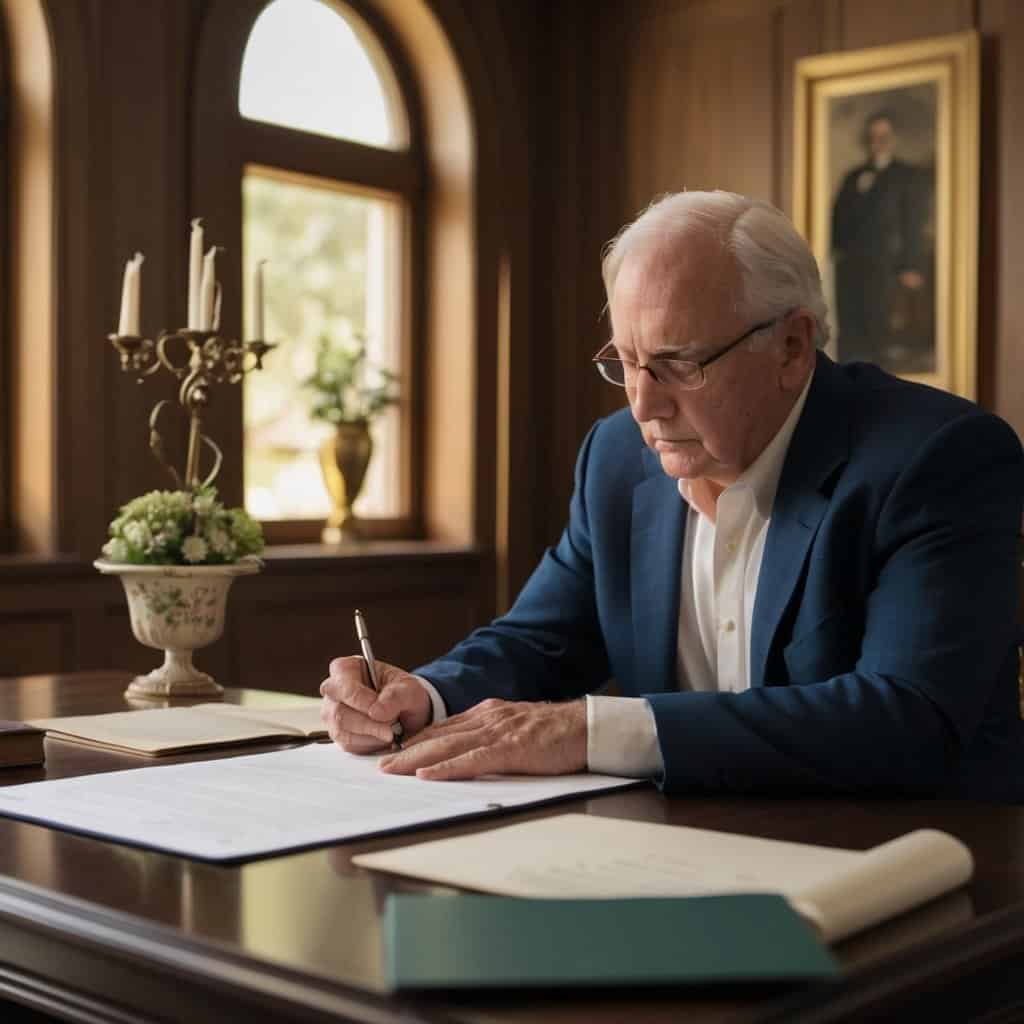
Knol Estate (Re) Overview
The case Knol Estate (Re) involves the estate of Lucas Knol, who passed away in October 2021. The court is tasked with determining the validity of a will that was found in both electronic and print forms. The applicant, Emiko Imafuku, claims to have been in a common-law relationship with Mr. Knol and seeks to have the court recognize the putative will as a valid testamentary document. The deceased’s siblings, Frederik and Rensje Knol, contest this application and request an adjournment to gather more information about the will and the deceased.
Why This Decision is Important
This decision highlights the complexities involved in estate disputes, particularly when there are questions about the validity of a will and the relationships among the deceased’s heirs. It underscores the importance of discovery processes in legal proceedings to ensure all relevant evidence is available for the court’s consideration. Additionally, it raises issues regarding jurisdiction, as the deceased had ties to both Canada and the Netherlands.
A Vest Estate Lawyer Take
In Knol Estate (Re), 2024 BCSC 2513, the court was left to consider whether a will found on the Lucas Knol’s (the “Deceased”) computer in which he named a woman claiming to be his spouse, Emiko Imafuku (“Ms. Imafuku”), as a beneficiary and executor for the Canadian assets and longtime friend and lawyer, Erik Schriemer (“Mr. Schriemer”), to be the executor and beneficiary for the deceased’s Netherland assets (the “Will”). The Will had not been notarized or signed by the Deceased.
The Deceased was known for being a complicated individual, splitting his time between the Netherlands and Canada, further splitting his time between British Columbia and Yukon. The Deceased left bank accounts as well as vehicles and other personal property here. He held gold claims in the Yukon, and held accounts, vehicles, personal property and an interest in a farmhouse in the Netherlands. However, the exact value of the gold claims is left undetermined, according to the BC Supreme Court.
The individuals contesting the will are the deceased’s siblings, Frederick Knol and Rensje Knol (the “Siblings”), who were not left anything in the will. The Siblings seek an adjournment (a break) to gather more information about the circumstances of the Will and the Deceased to apply for a jurisdictional challenge, and wish to create a hybrid proceeding of the petition allowing a discovery process, and cross-examination of Ms. Imafuku.
Before passing away, Ms. Imafuku claimed the Deceased prepared this will due to the litigation with his siblings over their mother’s estate in the Netherlands, which had deteriorated their relationship. Ms. Imafuku argued that the Deceased wanted to ensure that his siblings did not receive anything from the estate due to the relationship breakdown between them. She claimed that she had been in a common-law spousal relationship with the deceased for about 15 years before his death in 2001. She claims that he wrote the will through Mr. Shriemer’s assistance, in 2020 while he was being treated for heart problems, and submitted photos and Christmas cards to show that they were in a spousal relationship. Justice Crerar wrote that she had a strong case on that point.
In 2022, Ms. Imafuku filed a court petition to the BC Supreme Court, wanting to apply the curative provisions of s.58 of the BC Wills, Estates, and Succession Act, to make the Will an official testamentary document, in other words, an official will.
However, the Siblings painted a different narrative and supplied affidavit statements challenging this spousal relationship, and questioned the veracity of the Will itself, which had not been signed or notarized, despite being written 18 months before the deceased’s death. They pointed out issues with Ms. Imafuku’s spousal relationship and evidence but also jurisdictional issues. They also point out to the suspicious circumstances in which Mr. Schriemer was a lawyer of the Deceased but also a beneficiary under the Will.
The court ruled in favour of the Siblings, granting a jurisdictional hearing in advance of the petition hearing, and granted a discovery and cross-examination of Ms. Imafuku to determine her credibility. This case is significant in showing how the court has broad powers to order hybrid discovery process when there are hotly contested issues to a petition before the court, and the significance of what can happen when a will is not properly executed.
Case Details
- Citation: 2024 BCSC 2513
- Court: Supreme Court of British Columbia
- Judge: Mr. Justice Crerar
- Date of Judgment: December 5, 2024
- Parties Involved:
- Petitioner: Emiko Imafuku (claiming common-law spouse status)
- Respondents: Frederik Knol and Rensje Knol (siblings of the deceased)
Background
- Lucas Knol had a complex life, living part-time in Canada and part-time in the Netherlands.
- He had various assets, including bank accounts, vehicles, and gold claims in Yukon.
- Ms. Imafuku found a document titled “Last Will and Testament” on Mr. Knol’s computer and printed it out.
- The siblings question both the relationship between Ms. Imafuku and Mr. Knol and the legitimacy of the will.
Outcome
The court ruled in favour of allowing further discovery processes before making any final determinations regarding the validity of the will. Key points from the ruling include:
- The need for discovery orders to gather evidence related to Mr. Knol’s assets, his domicile, and the legitimacy of the will.
- The jurisdictional challenge raised by Mr. Knol’s siblings will be addressed before proceeding with the substantive hearing regarding the will.
- Costs associated with this application will be paid from Mr. Knol’s estate rather than by Ms. Imafuku.
Key Takeaways
- Discovery is crucial: The decision emphasizes that gathering evidence through discovery is essential for a fair resolution in estate disputes.
- Jurisdiction matters: The court recognizes that jurisdictional issues can significantly affect how estate matters are handled, especially with cross-border elements.
- Relationship scrutiny: The nature of relationships can impact claims to estates, underscoring the importance of establishing credible connections.
- Costs borne by estate: It is common for legal costs in such disputes to be covered by the estate rather than individuals involved, promoting access to justice.
- Potential for multiple proceedings: The court aims to avoid conflicting decisions in different jurisdictions by addressing these complex issues comprehensively.
References
https://www.canlii.org/en/bc/bcsc/doc/2024/2024bcsc2513/2024bcsc2513.html
Knol Estate (Re), 2024 BCSC 2513 (CanLII), <https://canlii.ca/t/k9fsq>, retrieved on 2025-03-06

Our main hub for British Columbia is located in the heart of Vancouver. That said, we serve the entire province of BC. We have the infrastructure to work with any of our clients virtually — even in the furthest regions of British Columbia.
Call (604) 256-7152 [toll free 1 (877) 415-1484] to get routed to the best representative to serve you or contact us online to schedule an appointment.
We also have a dedicated intake form to help you get the ball rolling. Our intake team will review your specific case and advise you on the next steps to take and what to expect moving forward.
Our offices are generally open 8:30 a.m.—4:30 p.m., Mon—Fri.


Preet Mandair
WILLS and ESTATES LAWYER
Preet’s practice focuses primarily on estate litigation. Preet is dedicated to providing practical and strategic advice to all clients in all aspects of estate litigation by understanding and assessing each client’s unique needs and advocating for her clients in a methodical and effective manner.

